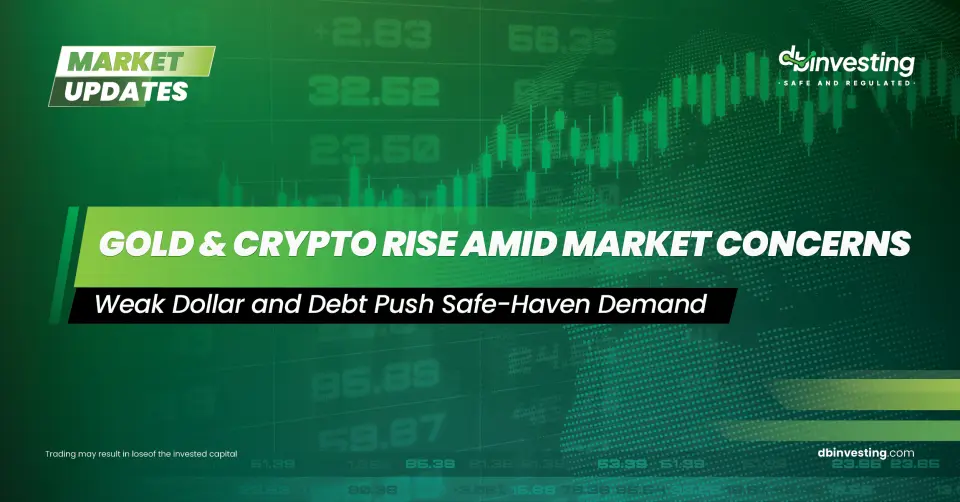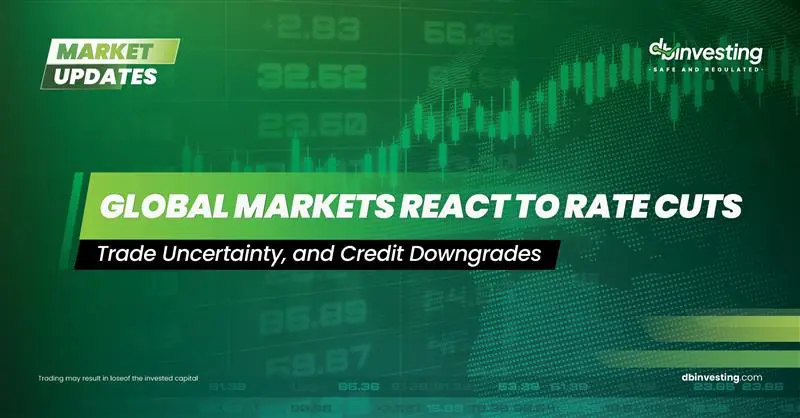Oil Surges, Gold Drops, and Bitcoin Under Pressure
Gold faced significant pressure mainly due to the strength of the US dollar, which rose by more than 0.3% against a basket of currencies on Monday.
Over the weekend, the United States launched airstrikes targeting three major Iranian nuclear facilities. President Donald Trump announced that the strikes had destroyed the sites, effectively halting Iran’s nuclear ambitions.
Trump stated that the weekend attack was largely driven by concerns over Iran’s potential development of nuclear weapons, although Iranian officials have repeatedly denied such allegations.
The US strikes marked a serious escalation in the Middle East conflict, with Tehran warning of bitter retaliation. Reports indicated that Iran might consider closing the Strait of Hormuz—a critical shipping route—in response.
Fears of Iranian retaliation triggered a sharp rise in oil prices, fueling concerns that higher energy costs could support global inflation and consequently keep interest rates elevated for a longer period.
The dollar benefited from these expectations, having already posted modest gains the previous week after the Federal Reserve maintained a largely cautious stance regarding future rate cuts.
Oil prices surged sharply in early Asian trading on Monday following the US strikes on Iran, amid growing fears of potential supply disruptions in the Middle East, although crude later gave up some of its initial gains.
The strikes carried out by Washington over the weekend targeted three major Iranian nuclear facilities, sparking intense anger from Iran and threats of revenge. Iranian media reported that the country was seriously considering closing the Strait of Hormuz.
Such a move would cut off a vital shipping route in the Middle East and could severely disrupt oil and gas supplies from the region.
The ongoing conflict between Israel and Iran, now in its eleventh day, has been a key factor supporting oil prices as markets fear potential supply chain interruptions.
Hostilities between Tehran and Washington could also lead to additional US sanctions on Iran’s oil industry, further limiting supplies to parts of Asia and Europe.
The market is now fully focused on how Iran will respond, with reports suggesting that Tehran may target US military bases in the Middle East.
US stock futures fell on Sunday evening as investors fled riskier assets following the weekend’s US strikes on Iranian nuclear sites, signaling a potential escalation in the Middle East conflict.
Wall Street remains burdened by a series of weak economic data and hawkish Federal Reserve comments from last week, with all three major indices posting a poor weekly performance.
Markets were rattled by surging oil prices, raising concerns over rising energy costs and persistent inflation.
However, Sunday’s losses in stock futures were relatively limited as attention shifted to upcoming PMI data for further insights into the US economy. Several Federal Reserve officials, including Chair Jerome Powell, are also scheduled to speak this week, with Powell’s two-day testimony starting Tuesday.
Bitcoin prices dropped on Monday, remaining under pressure after heavy weekend losses amid growing fears of further escalation in the Middle East following the US strikes on Iranian nuclear infrastructure.
Although cryptocurrencies are not directly impacted by economic disruptions, they are highly sensitive to shifts in market sentiment due to their speculative nature. Hawkish comments from the Federal Reserve also weighed on crypto markets last week, as investors feared that US interest rates would remain higher for longer.
Market Performance Summary:
Following the US strikes on Iranian nuclear facilities over the weekend, global markets experienced swift and varied reactions across key asset classes:
- Oil Prices: Spiked significantly in early trading on Monday, with markets pricing in the risk of major supply disruptions in the Middle East. Despite giving up part of the initial surge, oil remains at elevated levels due to ongoing concerns.
- Gold: Contrary to typical risk-off movements, gold prices declined under the pressure of a strengthening US dollar, which gained more than 0.3% against major currencies. The stronger dollar limited gold’s appeal as a safe haven.
- US Stock Futures: Dropped modestly as investors pulled back from riskier assets, reflecting caution over potential conflict escalation and the impact of surging oil prices on inflation and corporate costs.
- Cryptocurrencies: Bitcoin and other digital assets remained under pressure after suffering significant weekend losses. The heightened geopolitical tensions and expectations of prolonged high-interest rates weighed on speculative assets.
The strikes have injected fresh volatility into global markets, increasing demand for safer assets in some sectors while bolstering the US dollar and energy prices.
Conclusion:
The US strikes on Iranian nuclear facilities have reignited geopolitical fears, driving a complex market reaction: soaring oil prices, a declining gold market, pressured cryptocurrencies, and cautious stock trading. Investors now await Iran’s next move, which could further shake global markets.






